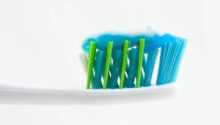Coffee is the fuel that keeps millions of people going from early morning until late at night. More than 1.5 billion people drink coffee every day. Every year, more than 120 billion coffee cups are drunk around the world. This makes coffee the second most popular drink after water.
Coffee makes you more productive and makes your body make “happy hormones.” It gives you energy and drive, and it may even help you write better. It also has some not-so-good side effects, like making your cholesterol go up, and your heart rate go up.
You’ll learn about five good things about coffee and five bad things about it that could help you decide if it makes your day better or worse.
Contents
What are the good and bad things about coffee?
5 Advantages of Coffee
Your metabolism is sped up by coffee.
Your metabolism, which is how fast your body burns calories, can speed up when you drink coffee. Caffeine in coffee is a stimulant that causes adrenaline to be released, which speeds up the heart rate and raises blood pressure. This makes your body use more energy (calories) than it would normally when it’s at rest, which speeds up your metabolism.
Coffee has been shown to speed up a person’s metabolism by 3% to 11%. For example, if you drink one cup of coffee every day, you burn about 100 more calories per week. Coffee also has a small amount of caffeine (about 80 mg), so it’s best to drink it with something else like tea or matcha green tea lattes, which have less CGA than coffee alone, to get the most effect on your metabolism.
It could help you lose weight.
When leaner men and women drank caffeine, their resting metabolic rates went up by 29%, even though they were not overweight or obese. This is thought to happen because caffeine increases catecholamine (adrenaline-like) activity, which speeds up the breakdown of fat (breakdown).

It helps prevent Type 2 diabetes.
Coffee has a reputation for being a healthy food, but did you know it could help prevent or delay the onset of diabetes? In a study that was published in the American Journal of Epidemiology, it was found that people who drank three cups of coffee a day were less likely to get type 2 diabetes. In particular, this could be because of the polyphenols and magnesium that are naturally found in coffee.
The authors think that these compounds might change how insulin works and could help people with type 2 diabetes live longer by lowering blood pressure or speeding up their metabolism and giving them more energy. Overall, drinking more than two cups of coffee a day seems to protect against this disease. In fact, people who drank four cups of coffee a day were less likely to die than those who didn’t drink any coffee at all during the week.
Heart disease and liver disease are less likely to happen.
Caffeine doesn’t change your cholesterol levels directly, but it does cause your body to make more of them. Research shows that drinking coffee can protect against liver cirrhosis by raising levels of HDL, or good cholesterol. Even though there isn’t enough evidence to say for sure, some studies show that drinking in moderation may also lower your risk of heart disease.
Coffee lowers the chance of getting Alzheimer’s and Parkinson’s.
Both Alzheimer’s and Parkinson’s, which are neurodegenerative diseases that affect millions of people around the world, can’t happen if you drink coffee.
Alzheimer’s and Parkinson’s are less likely to happen to people who drink coffee. People who drink coffee tend to live longer than people who don’t drink coffee.
So far, over 1,000 compounds have been found in coffee. Some of these are antioxidants, which protect your body from free radicals, which are harmful byproducts of chemical reactions that can damage cells and lead to cancer and other diseases like Alzheimer’s or Parkinson’s. When brain cells are exposed to toxins like those found in cigarette smoke, these antioxidants may help stop DNA damage.
5 Unwanted Side Effects of Coffee
Too much caffeine can make you sleepless, antsy, and anxious.
If you drink too much coffee, you might have trouble sleeping, feeling restless, or feeling nervous. Caffeine affects the central nervous system because it is a stimulant. Caffeine has different effects on different people because some are more sensitive to it than others. Caffeine can also be addictive. If you’re hooked on coffee and your body doesn’t get enough of it during the day, you might get headaches or feel tired when you stop drinking it for a while.
If you have trouble sleeping, like insomnia or sleep apnea, drinking coffee could make it harder for you to get to sleep. In fact, giving up your daily cup of coffee could help you feel better in these ways. Some people can also get anxious, nervous, or even have a panic attack if they drink too much caffeine. 
Stomach ache and heartburn
If you drink coffee often and have these symptoms often, try drinking less coffee or switching to decaffeinated coffee or tea instead.
Worries and sadness
Caffeine is a stimulant that makes the brain work faster. This can help people who are anxious feel less anxious, but too much caffeine can make anxious people feel even worse. Some people with clinical depression or anxiety disorders can feel better when they drink coffee because it can treat their symptoms. For people who don’t have these conditions, the effects may not be good: caffeine can make some people feel more stressed and anxious (especially if consumed in large amounts).
If you feel jittery or irritable after drinking coffee, you might want to stop for a while. If you keep your daily intake below 200 mg, you should avoid side effects like dehydration and heart palpitations. However, there’s no need to drink too much coffee to get your fix.
High blood pressure, headaches, and an irregular heartbeat.
- Blood pressure that’s too
- Both stress headaches and headaches that make you feel like your brain is trying to escape through your left temple are types of headaches.
- Strange heartbeat (palpitations)
Caffeine is a stimulant that can make your heart beat faster and raise your blood pressure. Low blood pressure might seem like a good thing if you’re about to go for a run or perform at an open mic night, but it can be dangerous for people who already have high blood pressure or arrhythmias.
Usually, these symptoms go away when you drink less caffeine or stop drinking coffee for a while.
It makes women more likely to get osteoporosis.
A few rare conditions, like hyperparathyroidism, Paget’s disease, and osteomalacia, can make you more likely to get osteoporosis. But what happens if your levels are just right? You’re probably still at risk.
In the end, coffee can be good for you if you don’t drink too much of it (one or two cups per day). But if you drink more than that, especially every day, you might want to think twice before adding another cup of coffee to your daily routine.
One Last Thing
Coffee has also been shown to be good for our bodies and minds in many ways, like lowering the risk of getting type 2 diabetes and Parkinson’s disease. The caffeine in your cup of coffee will help your memory and focus for a few hours after you drink it. However, the effects won’t last forever, so save the sugary drinks for later.
But there are some bad things that can happen if you drink too much caffeine: For instance, if you already have high blood pressure or heart problems, drinking too much coffee could make these problems worse. Furthermore, since most people don’t know where their beans come from (especially if they buy them already ground), it’s likely that pesticides were used in their production. Make sure your beans come from organic sources (like ours does).
It’s great to have coffee. It can get you going, calm you down, and taste great. But you should think about a few things before you drink it. If you don’t drink too much of it, coffee can help you keep your health in check.


